|
Including his poems and travelogues among many other hats, Ibn-e-Insha has also been regarded as one of the best humorists of Urdu. 'Urdu Ki Akhari Kitab' is one of his brilliant work touching on our education system. Though he wrote this book a few decades ago, but it unfortunately continues to be relevant even today. I'd the honour to watch (once again Danish Husain) a play with the same title at Prithvi theatre, Mumbai. My short-term interest in primary education was inculcated in college while interning at one of the Aga Khan Schools in Dongri, and at TISS with Jeroo Billimoria. I have this paper-back thin worn out book, Urdu ki Akhari Kitab, somewhere in back of my book shelf that I'd bought on my way back from first ever trip to Agra .... would read everything on education system from Paulo Freire, Jean Dreze to Ibn-e-Insha and Pierre Bourdieu. Those days I was working with Pratham Education Foundation, Mumbai assisting the the Shatak Zhep programme i.e. making Maths a fun subject through play-way in primary municipal schools of Mumbai. Yet, it was just one incident that changed my decision to discontinue interest in education - that early morning of July when I got stuck in one of Pratham's selected Ghatkopar municipal schools in Ramabai Ambedkar Nagar in 1997. The first-hand experience of seeing violence in my fieldwork area was enough for me to change my career trajectory to move out of Mumbai, and focus on tribal development. Danish Husain super brilliantly directs this play bringing in soft touches of contemporary issues. He acted along with Yasir Iftikhar Khan. The 70 min performance could be categorised as a satire, or stand-up type comedies. Doesn't matter how you identify, it is all about putting the dose in a small capsule that makes you laugh even if its a bitter truth. Let me put it this way, I was a bit baffled at times when audience continued to laugh... In fact, in the last scene - where one of the characters sitting among the audience challenge Husain and runs behind him to attack - I was wondering what's so hilarious in this, but perhaps that's the reality too, that we continue to laugh even in real life incidences around us! Satirical to the core. Both Iftikhar Khan and Danish Husain will steal your heart.. i.e. if you allow yourself by being in the show! You don't need to read the book before you watch this show.. the actors will explain you all about the style Ibn-e-Insha adopted such as asking a few questions after each chapter of History, Science, Maths, Geography... Music
Varun Gupta on tabla and Shantanu Helrekar on harmonium deliver spot on music. Shantanu's vocal could actually beat Tan Sen - amazing voice. All songs/poems are brilliantly lined up in the script. The use of audiovisuals in the background kind of merges with the mood of the theme that is presented. Good work by Danish Husain in giving the due recognition to Ibn-e-Insha's this piece of work, and building those lost connections of our cultural geography. @purabibose.com
0 Comments
Under the direction of K.K. Raina and conception, script and presentation by Ila Arun, Shabd Leela was presented at Experimental Theatre, NCPA, Mumbai. This two hour long event was an amalgamation of extracts from the works of Dr. Dharamvir Bharti, the award winning novelist, poet and playwright. The play was presented as a dramatised reading and enactment of his works from Andha Yug, Kanupriya and Ek Sahityik Ke Prem Patra, a personal collection of letters to his (second) wife. The only book I read was Kanupriya and it was a long time ago.. during school days. I think it didn't impress me.. may be because it used scholarly Hindi language and/or I was too young to comprehend the story in details. Well, the main intention for me to watch this play was to see Ila Arun performing. I only knew her as the singer of 'Mera assi kali ka' and it was in those days one of my favourite dance songs! Ila Arun performed the role of 'sutradhar' or compere/narrator and then she also interchanged her role as Pushpa Bharati and Gandhari. The concept is brilliant. The wife-husband duo, Rajeshwari Sachdev and Varun Badola did a fabulous performance as Pushpa Bharti and Dharamvir Bharti. I am totally biased towards Rajeshwari Sachdev after seeing her mesmerising performance in Lillete Dubey's Gauhar at Prithvi theatre last year. I was hoping she would sing again and I was glad that she was given tUhe opportunity to use her sweet voice. The rest of the cast, including K.K. Raina, kept the audience engaged. As an International Development professional, ask me how much I hate PowerPoint presentations. It is obvious that I disliked the idea of using slideshow/projected visuals in the background. I think it is becoming a trend to use slideshows in theatre performances as if the audience is creatively idiot to visualize the image/situation, therefore the need to feed them. Perhaps, it might be true ;-) This drama nicely interweaves the romantic lives of Bharati and his second wife; though, little is shared about his first wife. That's where I've a problem in conceptualization of this play. Yet, the overarching idea of showing Radha from Kanupriya kind of merging nicely in the storyline. The letters are nicely read - and I kept wondering if at all any of my boyfriends ever dare to write to me such heavy letters it will be 'the end' before beginning of our love story - and Ila Arun pulls my mind back from wandering away. She nicely mentions in her dialogue "Imagine how Dr. Bharti would've written these letters in WhatsApp age - with all the hashtags! These among many other tits-bits are integrated also through Mahabharata epic war in this drama to make the plays, stories and letters as relevant as possible to today's political circumstances. Overall, a relatively good experimentation of using different mediums - letters, biography, personal stories, and books of Dr. Bharati. @purabibose.com Mumbai's G5A screened S. Durga and it was over houseful - people had to be turned away! In 2017 I missed screening of this film at the IIFR, Roterdam where it won the Hivos Tiger Award by Director Sanal Kumar Sasidharan. The uniqueness of this film, according to me, is the editing and cinematography. The film does wonderful work in keeping the audience engaged with minimalistic dialogue in Malayalam. Durga, female protagonist, a North India, while the male protagonist a local from Kerala is name Kabeer. The name suggests the religious identity of the characters and the Director nicely combines the entire film happening on one night to the journey of Durga goddess. Without using any explicit dialogues or actions, the film powerfully reveals a lot of untold stories - open to interpretation by the audience. While watching this film I found similarities with another film, Turup, that was screened at Bhau Daji Lad Museum, Byculla around mid-March. A film by Maheen and Rinchin, who also happens to be my batchmates from TISS, Mumbai, brilliantly brings our various dimensions of social-cultural realities with beautifully selected Kabir' poetry reminding us about polarization in our society. The film S.Durga is nicely intertwined with goddess Durga, in Turup the film is scripted around chess competition in the neighbourhood. Though I felt Kabir's poetry was bit loud running throughout the narrative - sometime overpowering the protagonists, but sometimes it nicely allows you to enjoy the Sufism and folk music.
Politics around love has been in our society for ages, but the increase in degree of intolerance - in day-to-day- political chores are probably more that we see in today's context that's dividing multi-cultural communities. Highly recommend to watch both the films. P.S. I'd to change the title of the blog (31 July, 2018) because this page has attracted 100x more viewers from Gulf countries therefore I use the current title hoping to control the traffic (thanks to google analytics). @purabibose.com The Godrej India Culture Lab has been churning out amazing events. I've been missing them due to my travel commitments. This week I'd blocked to paint the apartment, and for the 'Urdu Culture Now' event organized by the Godrej Culture Lab at Vikhroli, Mumbai. Just an hour journey by Ambernath local train, this event was a nice pre-monsoon break that was much needed from my DIY apartment painting mode. The event was nicely curated by a group of students, including two students of Tata Institute of Social Sciences (TISS), who were the first batch of Leadership Program Fellows. For me, it's always an honour to meet my humble motivating TISSian Profs Anjali Monterio and Jaysankar.. I still continue to draw inspiration from them and from their dedication in media and cultural studies. The event was a delicious kichidi of everything - almost everything - that comes under the umbrella of Urdu. It included: art exhibit, panel discussion, performances, and culinary delicacies. Exhibition The exhibit corner was small and nice with mix of poster work by Zeenat Kulavoor and Nasheet Shadani, books, Sound Zone, and even a Sticker corner - a sticker with your favourite poet's few quotes made a good take home souvenir. The Ghalib's famous quote printed in Urdu and Roman Script: hazaroñ khvãhisheñ aisi ki har khvahish pe dam nikle bahut nikle mere armän lekin phir bhi kam nikle magna Urdu aur mein It was Dec 1985: the first anniversary of the Bhopal disaster. My first-ever trip outside Maharastra. As a 10 year old I was the only child member of a singing group, Lok Sanskriti Kendra, which was somewhat an extension of a cultural wing of a political party. It didn't matter to me.. I was too young to understand politics, but the songs were motivating and I enjoyed the idea of going to places (Bombay mills union or farmer's movement) to sing! Proshanto da and Munni didi received an invitation for the team to sing at an event to mark the first anniversary in Bhopal. I was given a condition that my school class teacher of 5th standard/grade would've to give me permission! My class teacher was Hindi expert and her condition was I'd have to write an essay from my trip experience... something like Back to Office Report, but in Hindi! So I got a week's leave to visit Bhopal. We did the singing, and also were taken to field visit for meeting the families affected by the gas tragedy. As a child, I must have been in utter shock to see the impact of the disaster and began sobbing. Abba, one of the families who had lost his 8 yr old grandson in the Bhopal disaster, wanted to cheer me up. As an expression of love he gifted me one of his books in Urdu script with poems of Mir Taqi Mir, the 18th century Urdu poet. He made me memorize the name of this poet. He'd written my name in Urdu script on this gift book. It was a rich treasure for me and first familiarization with Urdu script. Urdu is one of the 12+ languages and dialects I think I understand ;-) Comprehending languages marks mastering in listening, talking, reading and writing - some languages I read and write better while others I can express/talk better. Urdu is the language that I am good at listening.. can't read and write, not yet. Panel Discussion The panel included poet Hussain Haidry, artist Zeenat Kulavoor, and Executive Editor of the Wire Urdu Mahtab Alam. I liked the way Annie Zaidi, writer and journalist, moderated smartly the discussion. A good line up but I guess there was no preparation among the panelist on the kind of discussion - it was more impromptu - which is fine, but wasn't knocking intellectual door. One reason I think for relatively weak discussion was that the topic of the panel was too generic. Hussain Haidry was asked to recite one of his poem by Annie, which he did brilliantly except that the last verse he was unable to recollect. Zeena Kulavoor I think is doing nice work with Urdu script, but she kind of failed to capitalise in sharing her talent - this was despite Annie's moderation in giving her a chance to share/describe with audience different types of formats of script within Urdu. Mahtab Alam tried to touch upon the issue of Urdu as a language and its existence, but overall the panel discussion revolved around Urdu in Bollywood. Or, perhaps I was expecting a bit too much from this panel. Performances Storytelling Danish Hussain created a good mood in the audience. He'd about 20 min slot, which in normal scenario is the time taken by the storytellers to build up a tempo with the audience. In brief, it was like a peck in the cheek As an amazing actor, he did his performance flawlessly - sharing information about Dastangoi and its historical transition over the centuries; how in 1881 first Dastan-e-Amir-Hamza stories published making it one of the longest written story; his theatre company the Hoshruba Repertory's approach of using multi-lingual storytelling; and finally throwing few examples of diversity of story telling - dastan-e-rokna, serafa, and aiyyari or trickery - all sweetly wrapped up in the limited given time. If one digs beyond Danish Hussain's storytelling its also all about making Urdu language public and 'marketable' - I'm using the term that Mahtab Alam had raised in the panel discussion. It was only a couple of weeks ago that I'd my first chance to see Danish's performance (read my blog Qissebaazi in May 2018). With today's glimpse I'm hoping to see many more in the near future. Pop music Pop-music and Urdu might sound like a strange bedfellows, but that's what Winit Tikoo is trying to proof the otherwise. I am not a pop music person, and anything new takes time for me to sink in. As such Winit Tikoo's performance was nice, and the audience enjoyed it. Always nice to see people with deep passion. He is one of them striving to compose music of Hindustani/ Urdu/Hindi poets independently as an artist. The traditional food, dawaat, was a nice arrangement (for an orphan/solo me). Food always is a good excuse to engage people to interact.
I loved this event and was glad to see it happening here in India/Vikhroli at the Godrej Culture Lab, which eventually (hopefully) will be a big plus towards building a creative commons. @purabibose.com |
Privacy Policy: We use Google Analytics to collect data to improve the Website. By using and accessing the website you are consenting to use of Google Analytics. All Rights Reserved.
ARchIvES
March 2019
CATEGORIES
All
Privacy Policy: This website uses Google Analytics to improve the Website. By using and accessing the website you are consenting to use of Google Analytics.
|
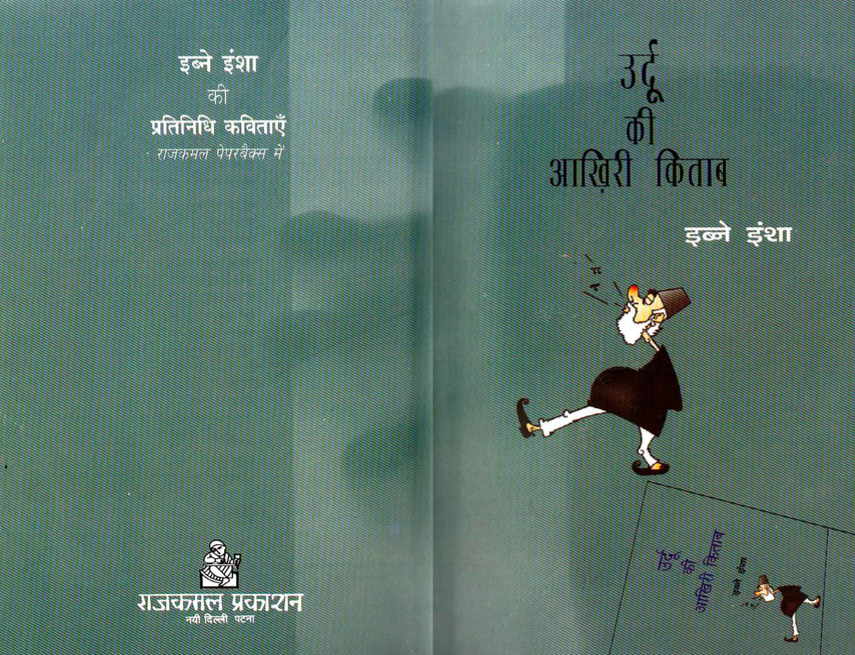
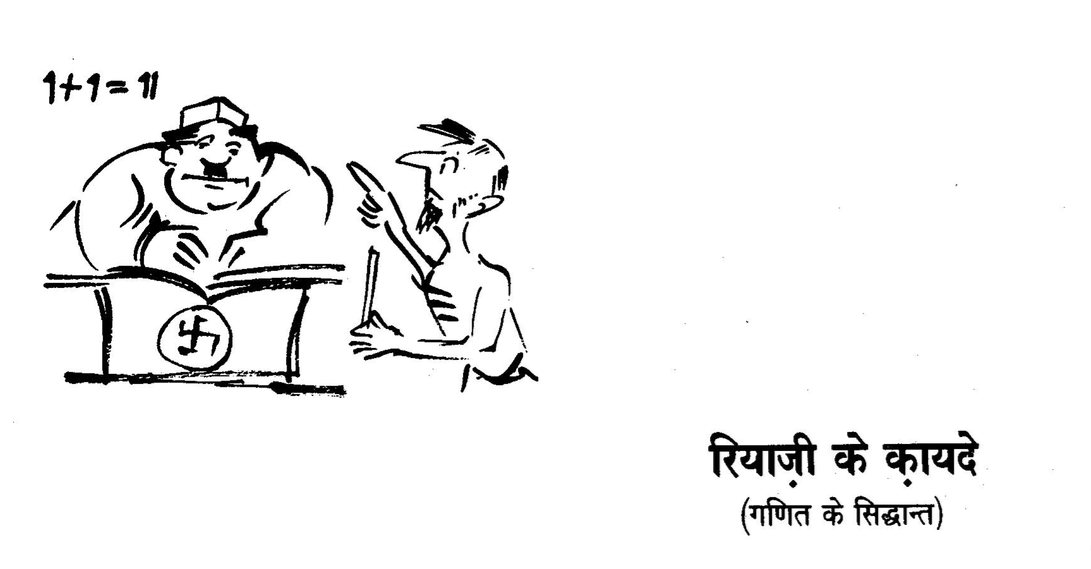
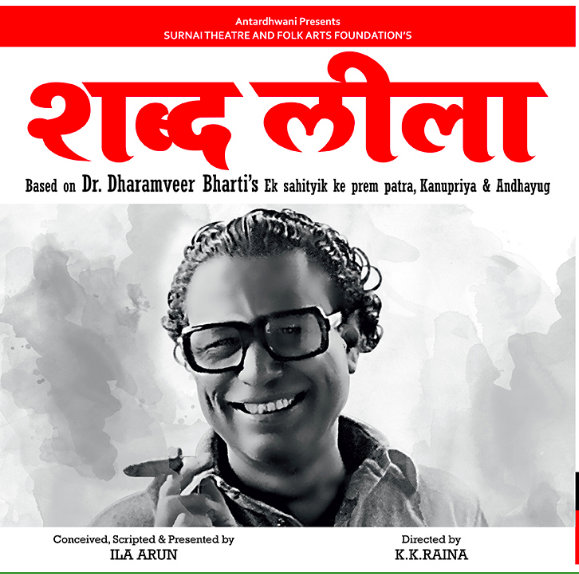
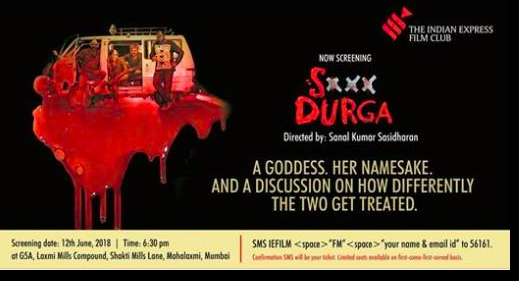
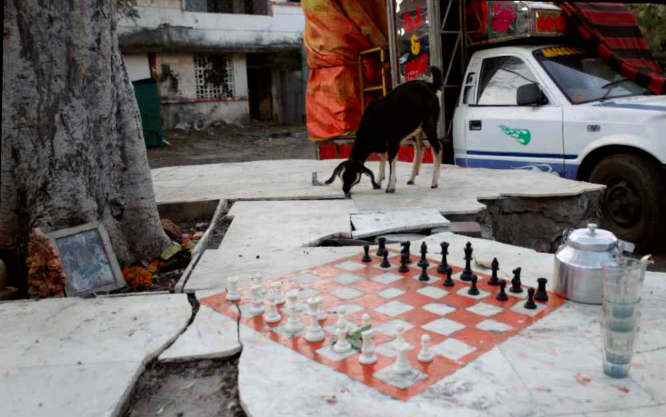
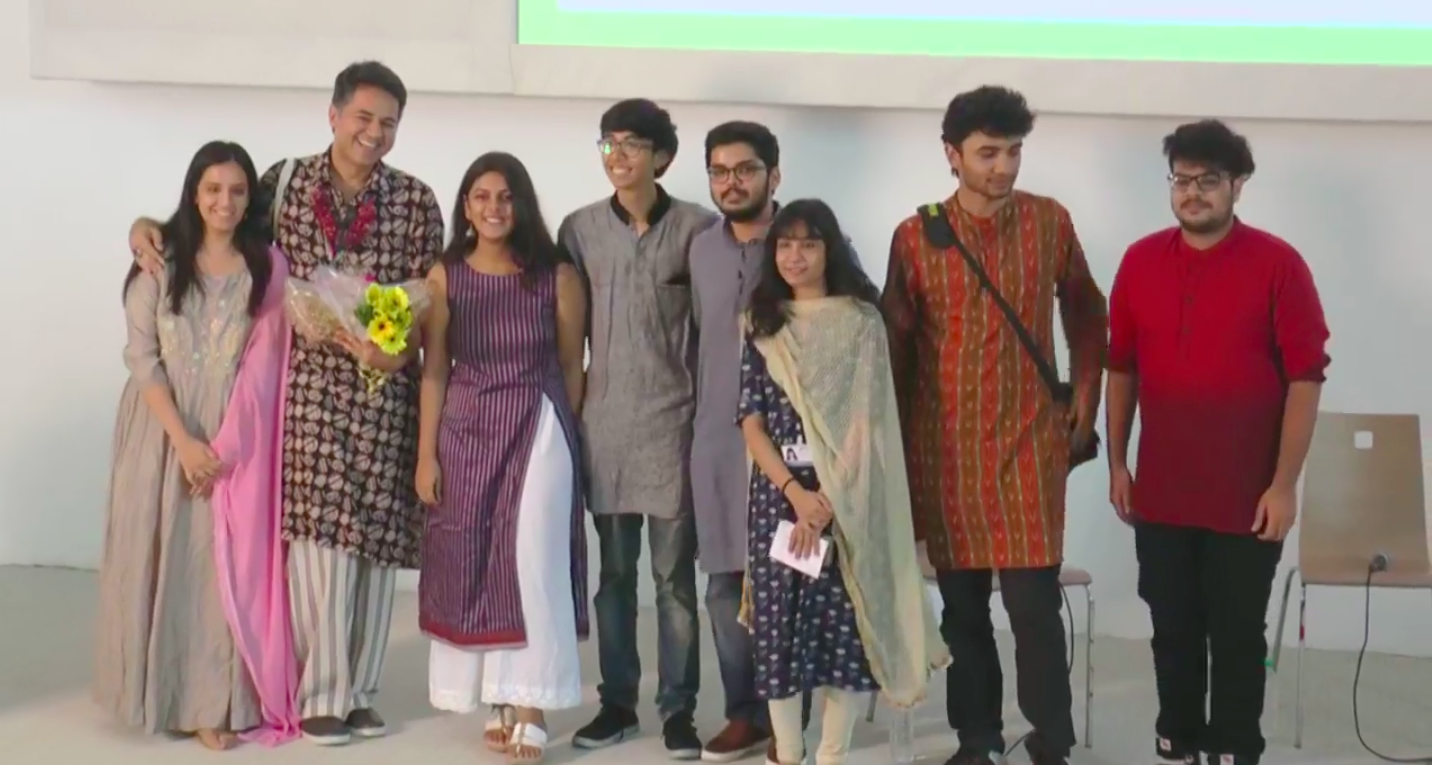
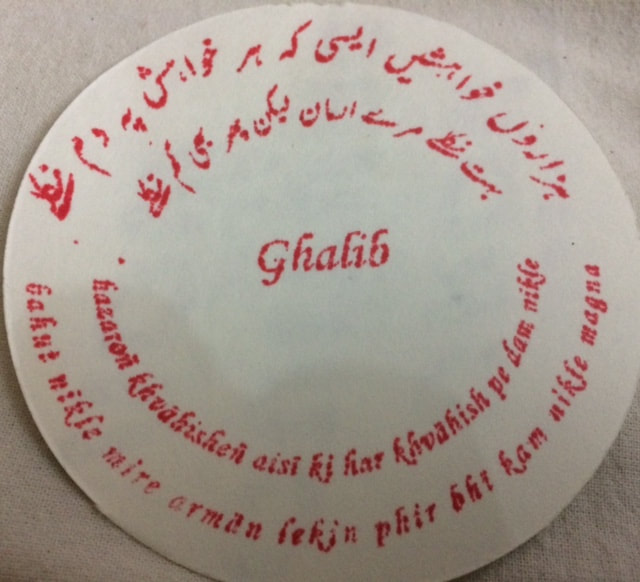
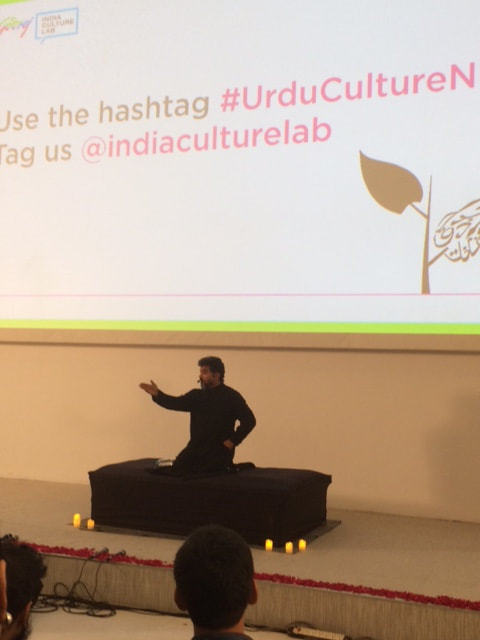
 RSS Feed
RSS Feed
